It showcases products that help the differently abled live an independent life.
A Ganesh Nadar takes you on a visit.
Have you heard of a museum in India that is meant to ease the life of the differently abled?
One has recently opened in Chennai and is aptly titled Museum of Possibilities.
Located in a big hall within the Lady Willington College campus, every exhibit is neatly placed and labelled so you don't have any trouble understanding what it does.
Funded by the Tamil Nadu government, the museum only showcases products meant for the differently abled.
Anyone who has created a device that will help the disabled can display their products here. If it sells, the money goes to them.
There are also products made by the differently abled that you can buy here.
All the money goes to the makers, the museum doesn't charge any commission.
The museum also demonstrates how technology and innovation can gift the differently abled more freedom.
Not only can they try out the products here to see what suits their needs, they can also explain the problems they are facing so that ‘researchers and innovators’ can come up with a solution.
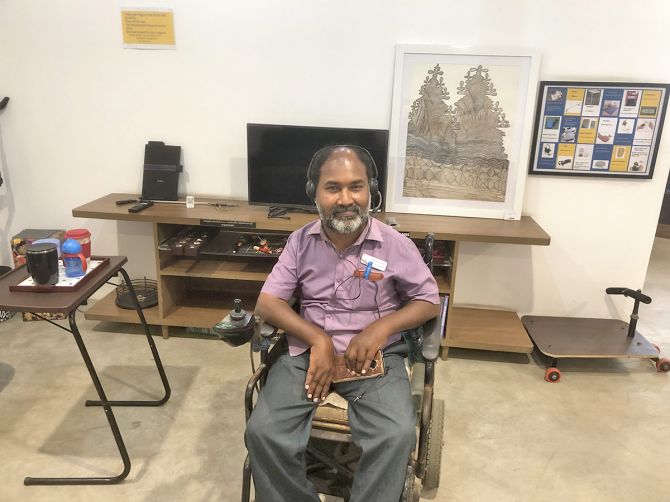
"This is a government project," says the museum's manager, A Prabhakaran. "We are here to help people, not make a profit."
He was very agile as he accompanied me on his wheelchair, explaining the exhibits.
The staff, he says, includes his three assistants, a speech therapist and a physiotherapist.
Some of the products displayed at the museum include:

These pair of glasses, meant for the visually disabled, scan the surrounding area and describe what they see.
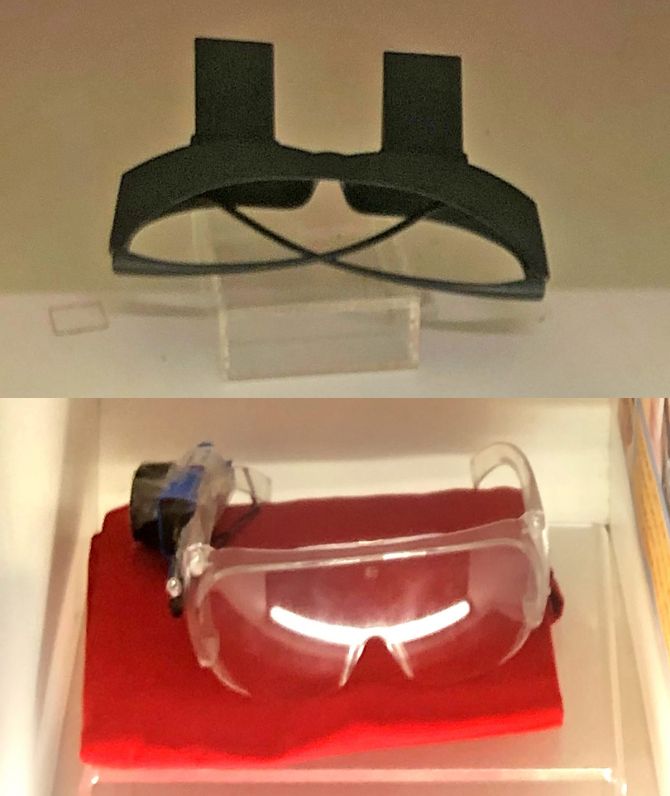
While these glasses, meant for those whose sight is weak, helps the wearer focus only on the ground below so that they know where they are placing their next step.
There are different kinds of hearing aids as well for the hearing impaired.

A person using this cane will not need to tap it on the ground.
It vibrates when it touches an obstacle, warning the user that they should be careful.
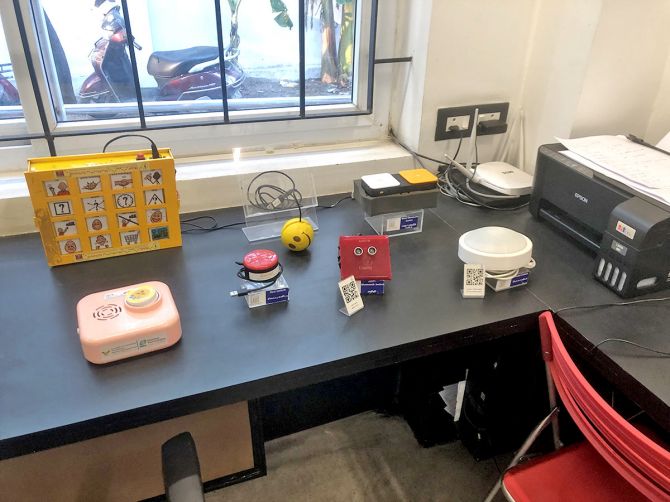
There is a special device for those who suffer from speech disability. When you press the first button, it says, 'Hello, how are you?'
Other buttons help them ask for food and go to the washroom or bedroom.
Then there is an educational device which teaches the visually impaired the Braille language.
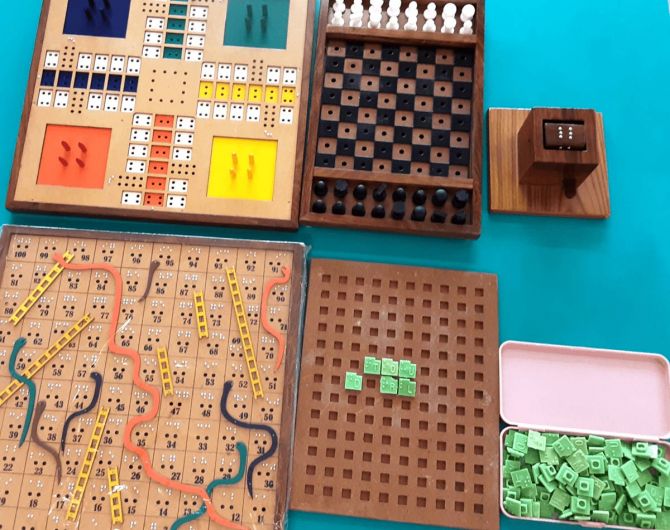
Toys, including board games, have been appropriately modified so that the differently abled can use them.

There are life size recreations of a living room, bedroom, kitchen and bathroom that are created with consideration for the differently abled.
These rooms are built so that everything is accessible, allowing the differently do be independent.
This image above shows you how a kitchen can be modified to allow them to use it with ease.
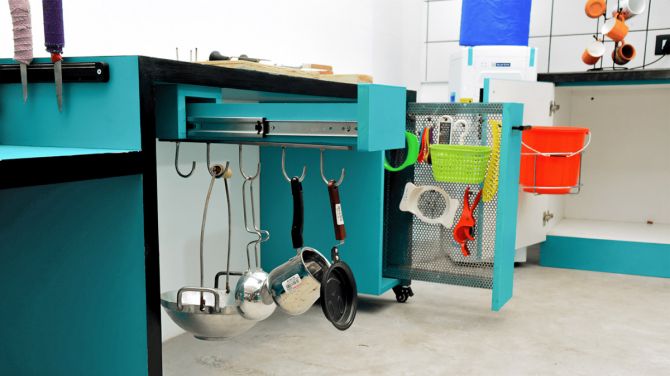
Pans and other kitchen essentials can be easily accessible.

Plates and cutlery too can be more friendly towards the differently abled.
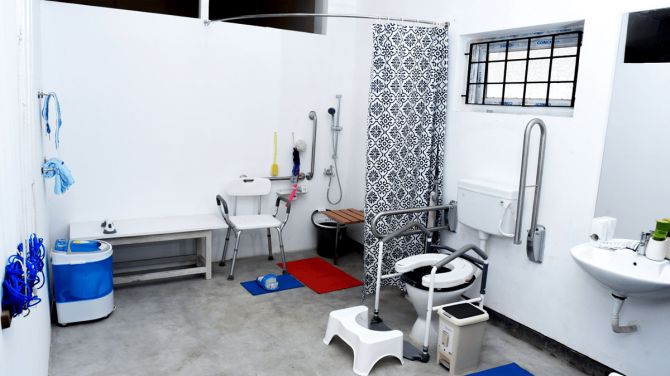
A few modifications make the bathroom more accessible.

The bedroom.

How clothes can be easily accessed.
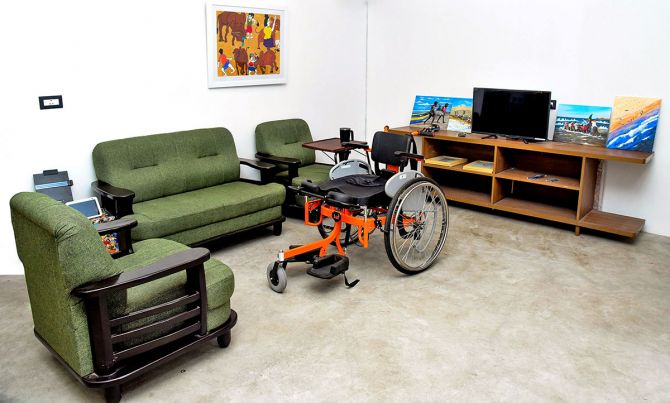
The living room.

Modified gardening tools.
While the museum is located on the ground floor, the first floor has a restaurant that overlooks the Bay of Bengal.
It serves delicious snacks and tea and the prices are reasonable. Surprisingly -- despite having colleges on either side and the ability to seat 50 people -- it was not crowded.
The restaurant is managed by Hot Breads, a well-known brand that has branches across Chennai.
Hot Breads also owns Writer's Cafe (do read all about it here), where it employs victims of acid attacks.
At the Museum Of Possibilities, Hot Breads trains the differently abled to become chefs. The six-month course, which comes with a certificate, is free of cost; the museum helps them find jobs later.
"But," says Prabhakaran, "many of them prefer to start their own places."
The museum is run by the NGO Vidya Sagar. It is open from 11 am to 8 pm and is closed on Tuesdays.











